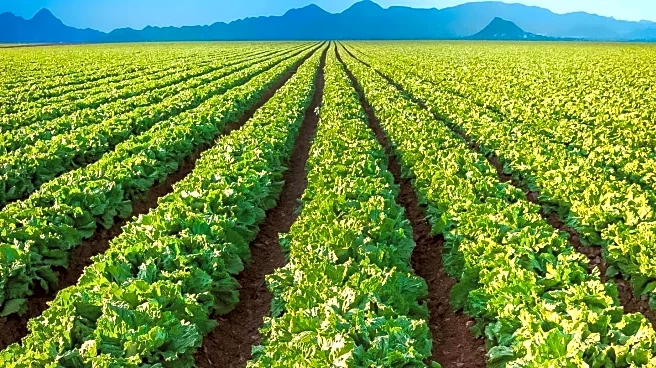What's Happening?
The Women in Agriculture (WIA) conference, scheduled for October 23 at CAFRE Loughry campus, has sold out, highlighting the event's popularity and significance. The conference will feature a diverse lineup of speakers who will share their experiences, challenges, and successes within the agricultural industry. Notable speakers include Nicola Wordie, a livestock farmer known for her social media presence, Emily McGowan, a mixed farmer and shop founder, and Lorna Sixsmith, a dairy farmer and author. Each speaker brings a unique perspective, from social media advocacy to business innovation, promising an inspiring and thought-provoking program.
Why It's Important?
The sell-out status of the Women in Agriculture conference underscores the growing recognition and importance of women in the agricultural sector. By showcasing successful female leaders, the event aims to inspire and empower more women to pursue careers in agriculture, a field traditionally dominated by men. This shift could lead to increased diversity and innovation within the industry, as women bring different perspectives and approaches to farming and business. The conference also highlights the role of social media and storytelling in connecting the agricultural community with the wider public, potentially influencing public perception and policy.
What's Next?
With tickets sold out, interested individuals can join the waiting list via the Ulster Farmers’ Union website. The conference is expected to foster networking opportunities and collaborations among attendees, potentially leading to new initiatives and partnerships within the agricultural sector. The success of this event may encourage similar conferences and events focused on women in agriculture, further promoting gender equality and diversity in the industry.
Beyond the Headlines
The conference not only celebrates the achievements of women in agriculture but also addresses broader issues such as sustainability, innovation, and the future of farming. By highlighting stories of resilience and adaptation, the event may inspire discussions on how the industry can evolve to meet modern challenges, including climate change and market fluctuations. The emphasis on storytelling and social media advocacy also points to a cultural shift in how agricultural narratives are shared and perceived.











